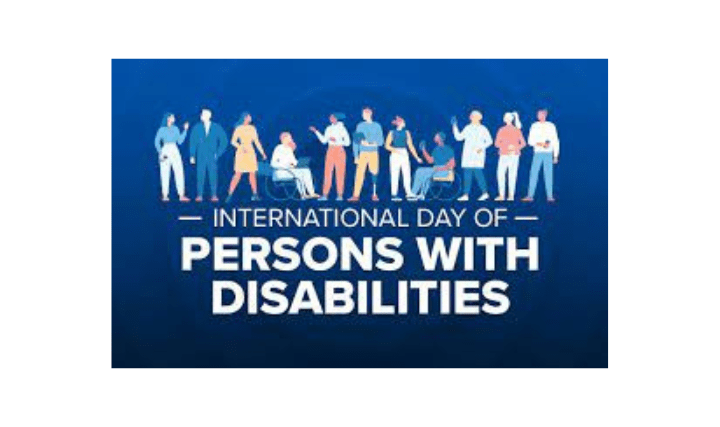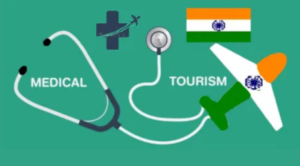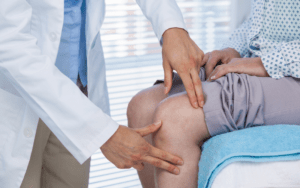Annually, the world marks the International Day of Persons with Disabilities, a significant occasion that shines a light on the critical need for inclusiveness and equal rights for everyone. This day is especially pertinent in the health sector, emphasizing the necessity for healthcare accessibility and tailored services for individuals with disabilities.
Unveiling Day of Persons with Disabilities
The United Nations’ Sustainable Development Goal 3, centered on ‘Good health and well-being for all’, aims to ensure universal health coverage for individuals with disabilities. This initiative is aimed at mitigating these disparities, enhancing their rights, health status, and economic involvement.
Regarding India, data from the 2011 census showed that 2.21% of the population had disabilities, a percentage that is likely to have risen in the past ten years. India has progressed in integrating people with disabilities into government health initiatives, including programs like Ayushman Bharat Yojana, ADIP, and Nirmaya Health Insurance. Despite these efforts, substantial challenges and gaps remain in the healthcare system, particularly regarding disability inclusiveness. The variation in healthcare accessibility across urban and rural regions, marked by their respective differences in resource availability, cost, and ease of access, adds complexity to the situation. Individuals with disabilities face unique obstacles in these diverse settings, requiring customized methods and strategies to improve their living conditions and ensure their inclusion in both urban and rural environments.
The Essence of Disability Inclusion
At its core, disability inclusion is about guaranteeing equal access and opportunities for people with disabilities in all aspects of life. This encompasses public space accessibility solutions, workplace assistive technologies, and inclusive health sector policies. An inclusive environment where every individual, regardless of their abilities, can fully participate, strengthens our community’s diversity.
Healthcare’s Role in Advancing Inclusion
Healthcare is a key player in promoting disability inclusion. Facilities with accessible designs, specialized disability support services, and care tailored to special needs are essential. Healthcare professionals often lead the charge in advocating for disability rights and pushing for reforms for better care and support.
Empowerment via Assistive Technology
Assistive technology has been a game-changer for people with disabilities, enhancing their daily life navigation. From mobility aids to communication tools, these technologies empower individuals, granting them more independence and societal involvement. The health sector’s commitment to these technologies underscores its dedication to disability inclusion.
Advocacy and Awareness: Catalysts for Change
Raising awareness and advocating for disability rights are crucial in dismantling barriers and fighting disability discrimination. The International Day of Persons with Disabilities is a prime opportunity for public education, stereotype challenging, and showcasing the contributions of disabled individuals. It’s a day to reinforce diversity and inclusion and the need for an accessible, equitable world.
The CRPD’s Impact
The United Nations Convention on the Rights of Persons with Disabilities (CRPD) represents a monumental shift in the global approach to disability rights and inclusion. Adopted in 2006, this international treaty has been instrumental in redefining how societies view and treat persons with disabilities. The CRPD’s impact is profound and multifaceted, influencing laws, policies, and attitudes worldwide.
At its core, the CRPD challenges traditional perceptions of disability. It moves away from viewing disabilities as a ‘medical’ or ‘charity’ issue, instead framing them within a human rights context. This paradigm shift emphasizes that persons with disabilities are not objects of charity or medical treatment but are holders of rights. The CRPD asserts that these individuals have the right to make decisions for their lives based on their free and informed consent and to be active members of society.
One of the CRPD’s significant contributions is its detailed articulation of rights specific to persons with disabilities. These include the right to accessibility, personal mobility, health, education, work and employment, and participation in political and public life. By outlining these rights, the CRPD provides a comprehensive framework for governments to enhance their legislation, policies, and practices to ensure full inclusion and equality.
Importance of ‘reasonable accommodation’
It refers to the necessary and appropriate modifications and adjustments to ensure persons with disabilities enjoy all human rights and fundamental freedoms. This concept has been a catalyst for change in workplaces, educational institutions, and public services, driving innovation in accessible design and services.
Furthermore, the CRPD has spurred the development of disability-inclusive development policies. It recognizes that persons with disabilities are disproportionately affected by poverty and advocates for their inclusion in all development efforts. This approach ensures that development programs, whether in education, health, or economic opportunities, are designed with the needs of persons with disabilities in mind.
The CRPD also plays a critical role in advocacy and awareness-raising. It provides a platform for disability rights activists to campaign for change and holds governments accountable for their commitments to disability rights. The annual observance of the International Day of Persons with Disabilities, for instance, gains additional significance under the CRPD, serving as a reminder of the ongoing efforts required to turn the convention’s principles into reality.
Workplace Inclusion
Disability employment is a vital inclusion aspect. Offering equal job opportunities and creating accessible workplaces are key to empowering disabled individuals. Employers are instrumental in this by adopting inclusive hiring practices and accommodating employees with disabilities.
The Future of Inclusion
The ongoing goal is to further develop disability inclusion policies and practices. This involves addressing not only physical accessibility but also cultivating an inclusive culture that values diversity. It’s about evolving from compliance to embracing inclusion as a fundamental value.
Conclusion: Our Inclusion Commitment
As we commemorate the International Day of Persons with Disabilities, let’s pledge to be change advocates. Whether supporting disability rights, promoting accessibility, or understanding the challenges faced by the disabled community, we all have a role in fostering an inclusive society.
UniMediks’ Contribution
Aligned with the International Day of Persons with Disabilities, UniMediks is committed to delivering exceptional medical services tailored to every individual’s unique needs. Our focus on accessibility and comprehensive care ensures that everyone, irrespective of their physical capabilities, receives the necessary medical attention. Explore UniMediks to discover more about our services and our role in promoting a more inclusive healthcare system through serving foreign patients at affordable price in India.















